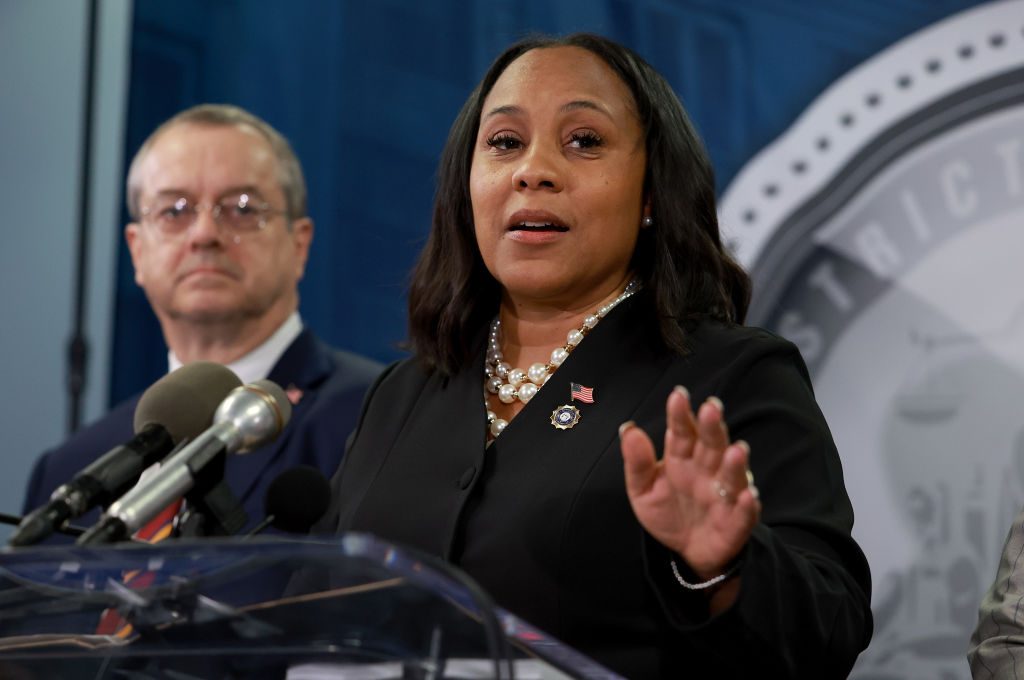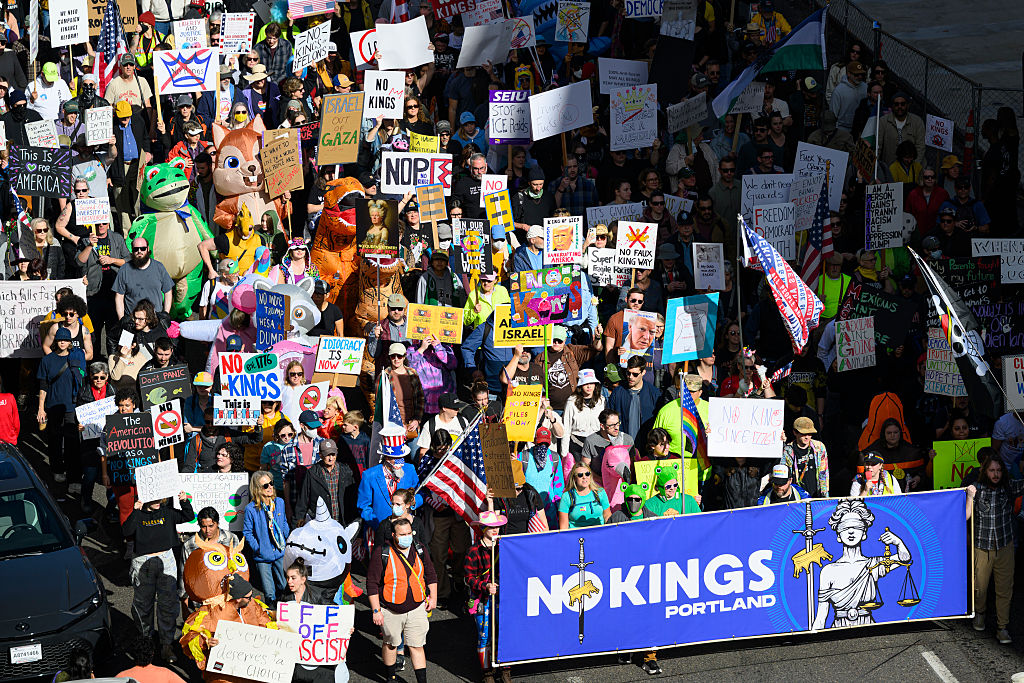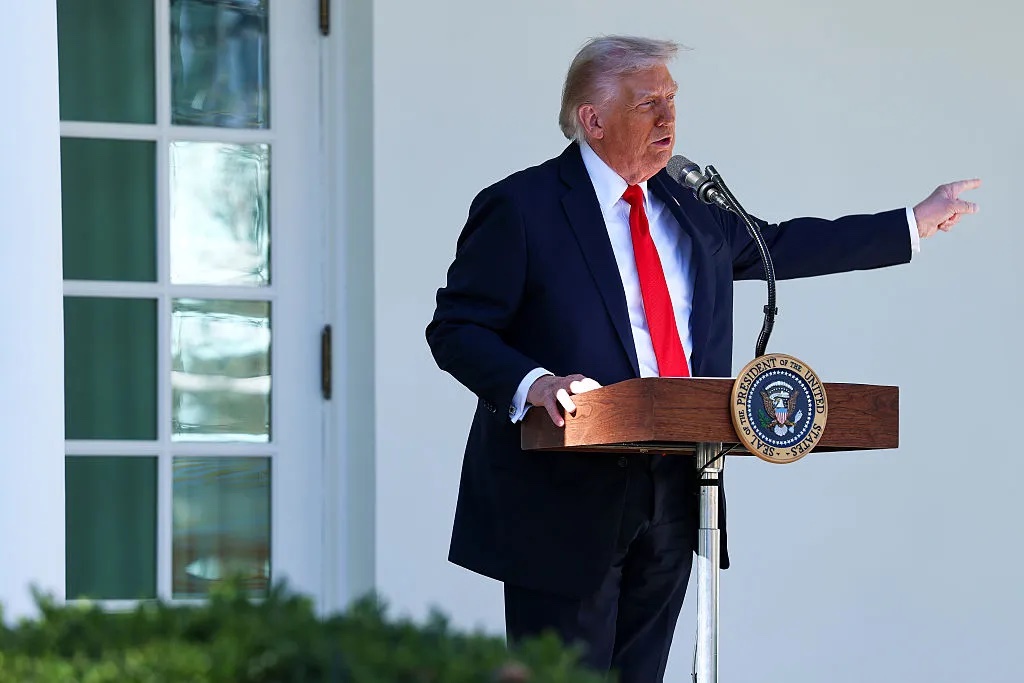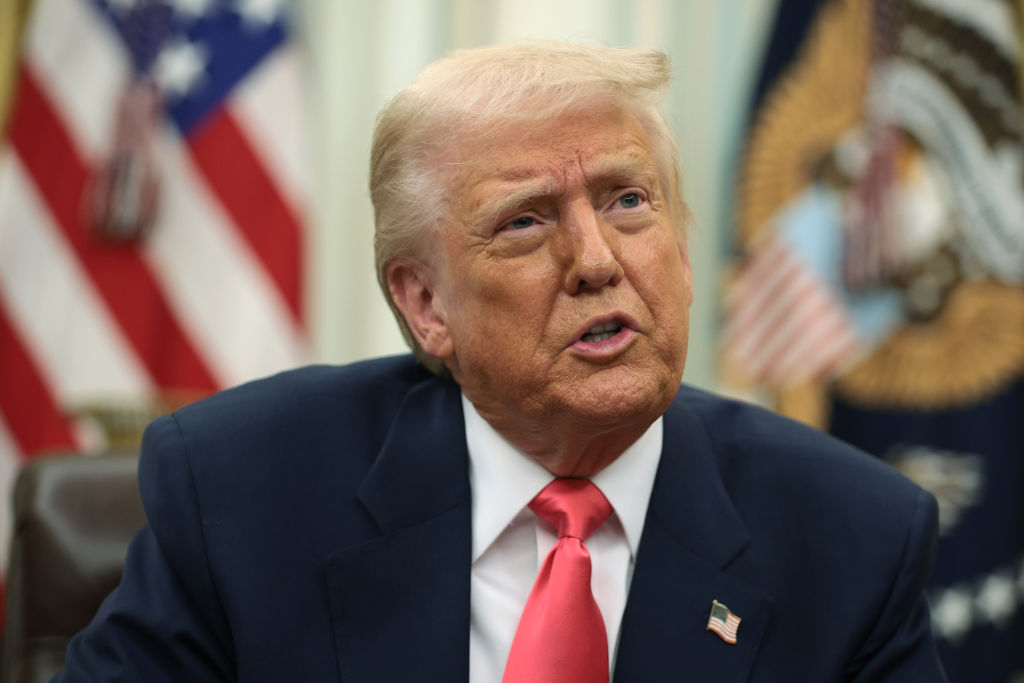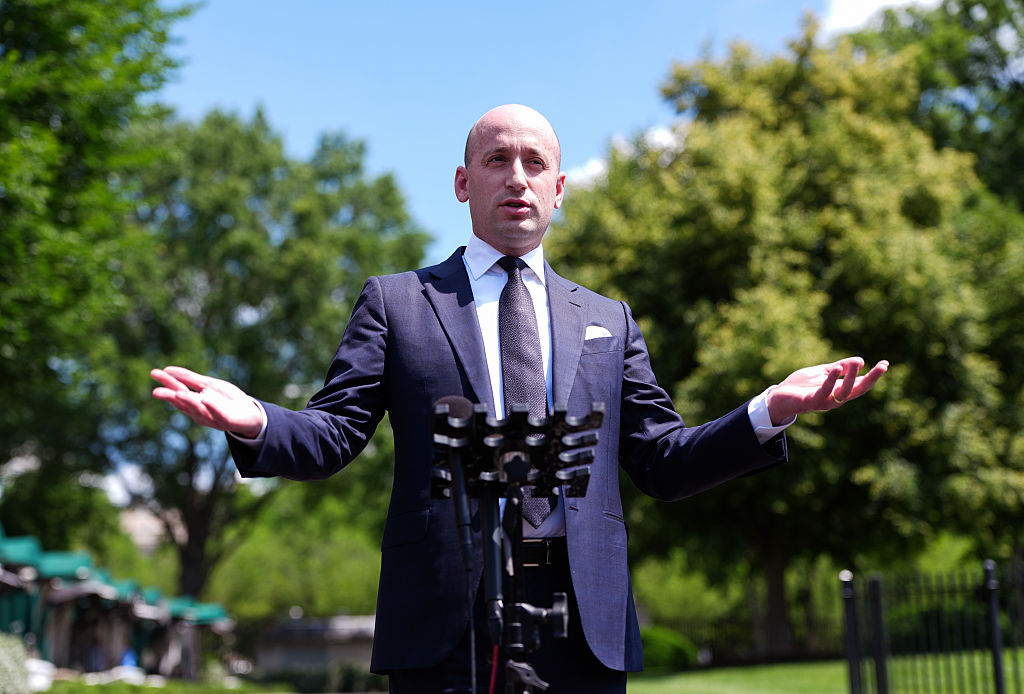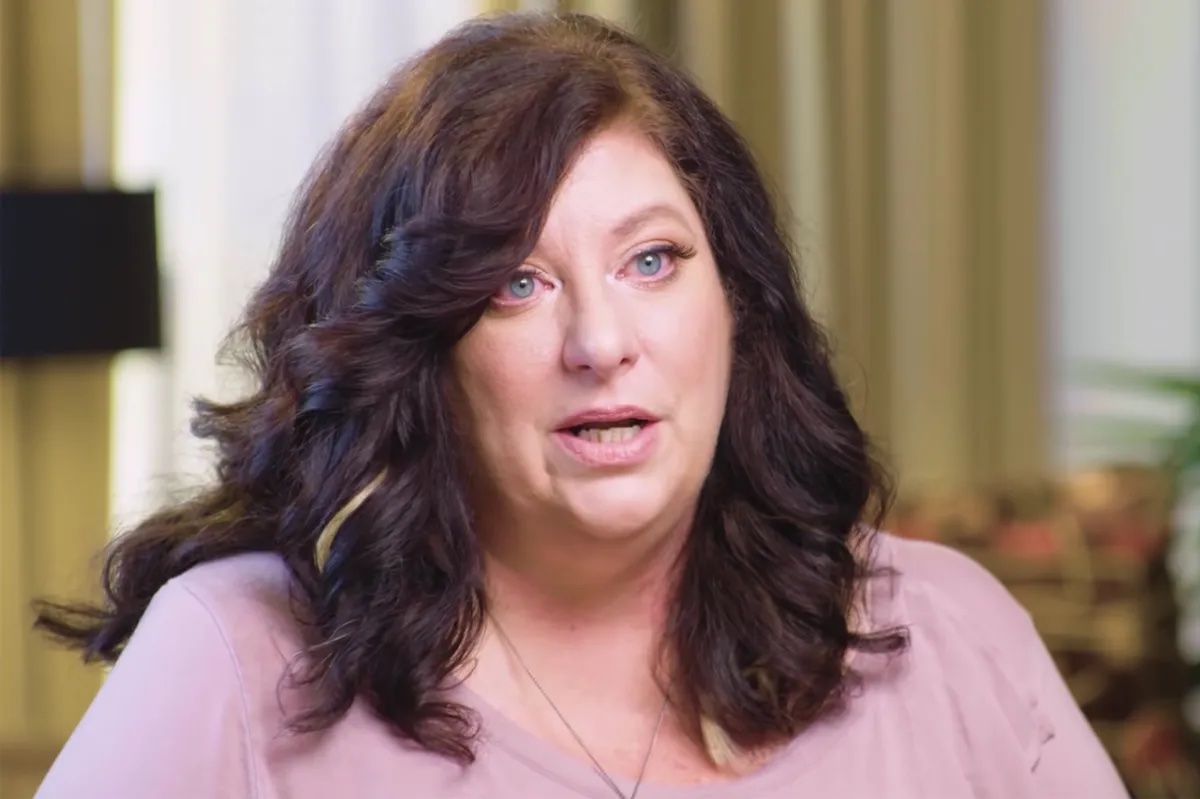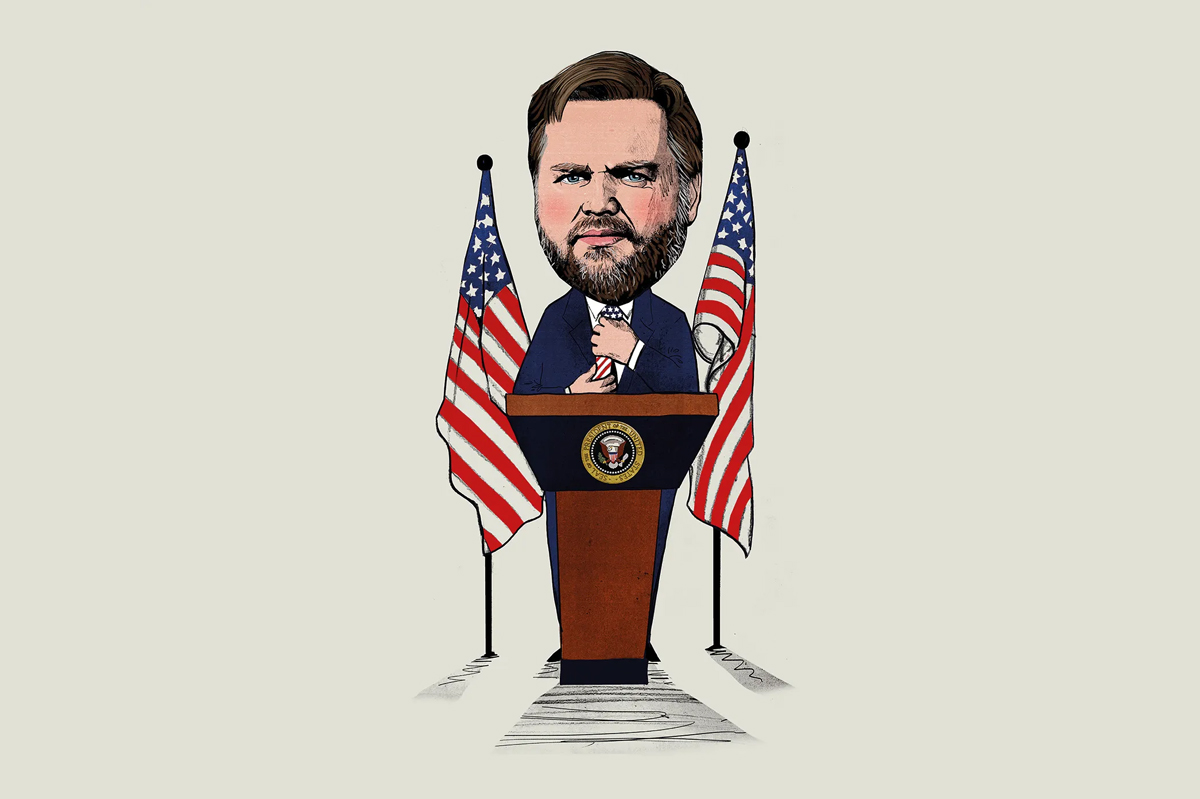In our age of mass attention deficit, the manifold legals trials against Donald Trump represent a big challenge. Maybe that’s the point. It’s hard to care when you can’t keep count.
The whole objective of “lawfare,” as it is called, is to bully your enemy into submission through overwhelming paperwork. It might work. That doesn’t make it just. Let’s be clear though: calling the multi-dimensional legal campaign against Donald Trump “lawfare” isn’t a statement of support for Trump, necessarily. It’s more a summary of observable reality.
The irony is that, at this stage in the presidential campaign, the legal warfare on Trump is increasing his appeal
The latest of four criminal cases against the forty-fifth president of the United States comes from Georgia. Last night, Fani Willis, the district attorney for Fulton County, rolled out her indictment — which comes on top of the hush-money tax record case in New York State, the federal hoarding classified documents case in Florida and the federal January 6 conspiracy charges in Washington, DC. Four complex cases in four different regions, ninety-one criminal charges. Try to keep up.
The Fulton County indictment has forty-one charges, thirteen of which are aimed at Trump. The added spice in this indictment is the introduction of eighteen other defendants — including his former chief of staff Mark Meadows, former Trump lawyer and New York mayor Rudy Giuliani and the notorious Sidney Powell — as well as Willis’s use of the RICO (Racketeer Influenced and Corrupt Organizations) Act in the opening charges.
Fans of mafia films will know about RICO — the legal mechanism through which many American mobsters have been imprisoned. In this instance, Fulton County is using Georgia’s RICO Act, which mirrors the federal law in order to target organized crime at the state level.
The charges leveled at Trump also include solicitation of violation of oath by a public officer, conspiracy to commit forgery, filing false documents and conspiracy to impersonate a public officer.
We shall have to wait for the trial to see how much evidence Fulton County can summon against their main target, but this indictment, similar to the January 6 one, also relies heavily on implicating Trump in “conspiracy” charges. Proving Trump’s guilt there should mean having to show that Trump not only egged on illegal actions by claiming that the election was stolen, but that he willfully took part in a criminal plot to make the election fraudulent. Given that Trump, by all accounts, still sincerely believes that the election was already fraudulent — i.e., “stolen” from him rather than the other way around — that could be very difficult for prosecutors.
The key piece of evidence against Trump in the Fulton County case, that we know of, is his now notorious phone call to Georgia’s secretary of state Brad Raffensperger. In it the then sitting president demanded that Raffensperger “find” 11,700 votes — the amount needed to swing the election in Georgia back in his favor. The whole case could come down to the interpretation of that word.
Trump says his call was “perfect” and, while that’s typical Trumpian hyperbole, he may be right that it wasn’t illegal. He didn’t order Raffensperger to invent non-existent votes — again, as far as we know — indeed the word “find” suggests that Trump sincerely believed the votes had been lost.
Fani Willis, the district attorney for Fulton County, made quite a show of her impartiality last night, insisting repeatedly that the principle of “innocent until proven guilty” applies in this case, as any other. She also said that she would like the case to be processed within six months.
But the Trump campaign calls Willis a “rabid partisan” who has, like other prosecutors, “stalled her investigations” for two and half years in order to roll out her indictment now to hamper the presidential campaign.
The irony here is that, at this stage, the legal warfare on Trump does the opposite: each indictment only increases his appeal among Republican voters, validates his talk of a “Deep State” conspiracy against him, gives him another fundraising boost and ensures that he will win the Republican nomination for the presidential election next year.
That may change as the election draws closer. The Trump campaign is now reportedly spending thirty cents of every dollar on their candidate’s lawyer bills. With so many court dates coming up, and so many detailed charges to wade through and rebut, Trump may find himself so bogged down in legal warfare that he can’t wage an effective campaign.
Running for president is an exhausting mission for a man in his prime. For a seventy-seven-year-old, it’s a taller order still. Add to that the stresses of not one, not two, but four criminal trials, and the task becomes almost imaginably demanding.
Then again, Trump is no ordinary political candidate. His team already see the legal battles as a good PR opportunity to show Trump’s relative vigour in contrast to his opponent, the ailing eighty-year-old Joe Biden.
Will that work? Or will the public become so bored of the court wrangling over Donald Trump that they lose interest? Will he be able to talk to the country about the issues that really matter to them — the economy, immigration, America’s position in the world — when so distracted?
These questions may well decide who wins the White House next year.
This article was originally published on The Spectator’s UK website.



